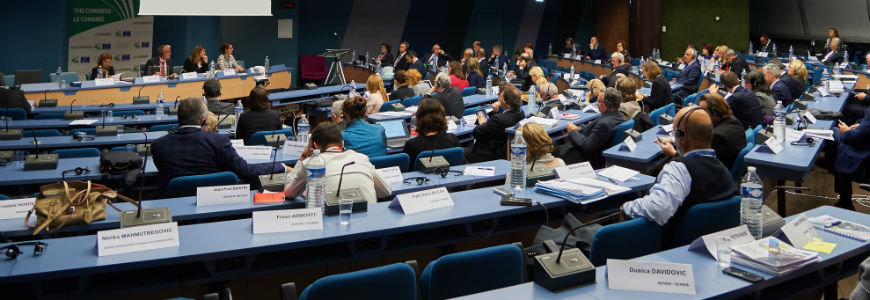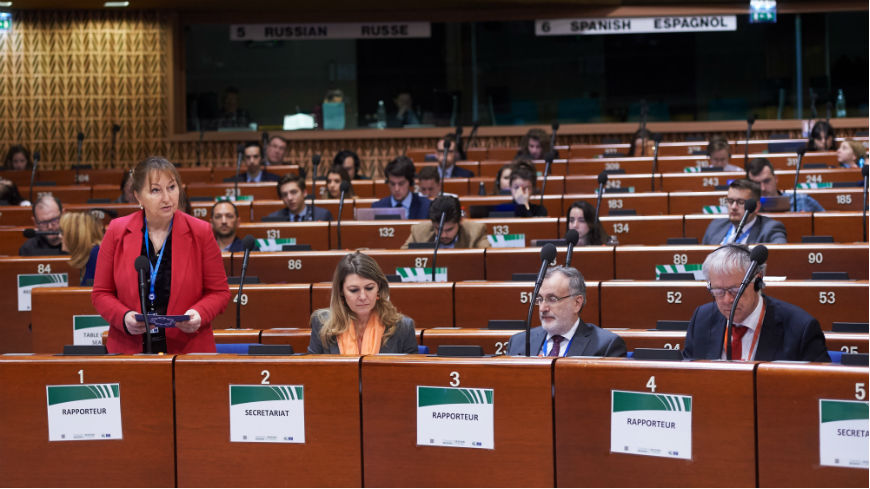The Council of Europe´s Congress of Local and Regional Authorities today expressed concern about the trend to re-centralisation and the unsatisfactory level of local democracy in the Republic of Moldova.
In a Recommendation adopted during its 36th plenary session, the Congress points out a number of shortcomings including the very limited fiscal autonomy and resources of local authorities, which makes them dependent from State transfers and subsidies. It also criticises the lack of precision of the grounds to activate recall referenda, which make mayors work under the permanent threat of a revocation referendum.
In addition, the Congress regrets that the State intervenes in local affairs through a supervision of local authorities which seems to be very invasive, frequent and discretional, and that there are not appropriate consultation mechanisms between the central government and the local authorities. Another issue for concern is that the political context for the exercise of mayoral functions in the country is negatively affected by the intensive practice of bringing criminal prosecution against mayors and local representatives.
The Congress underlines that the situation with the position of the Mayor of Chişinău is unsatisfactory, because since May 2017 the capital city has been run by acting mayors after the June 2018 elections were declared null and void on controversial grounds, preventing the elected candidate from starting his mandate.
On the positive side, the Congress welcomes that the principle of local self-government is explicitly recognised in the Moldovan Constitution and in relevant legislation, that efforts have been made towards the full ratification of the Charter of Local Self Government and that the present arrangements for the Autonomous Territorial Unit (ATU) of Gagauzia represent a political compromise that is working well in general terms despite some points of tension.
The recommendation was discussed together with a report that co-rapporteurs Marc Cools and Gunn Marit Helgesen prepared following a monitoring visit to the Republic of Moldova from 13 to 15 June 2018.
As a consequence of its findings, the Congress requests the Council of Europe´s Committee of Ministers to invite the Moldovan authorities to implement a number of measures addressing the problems identified.
- Report CG36(2019)15
- Speeches by:
- Marc COOLS, Belgium (L, ILDG)
- Gunn Marit HELGESEN, Norway (R, EPP/CCE)
Statement by Adrian ERMURACHI, Deputy Secretary General of the Government of the Republic of Moldova
- Mediabox Interview
*** 36th Session of the Congress ***






